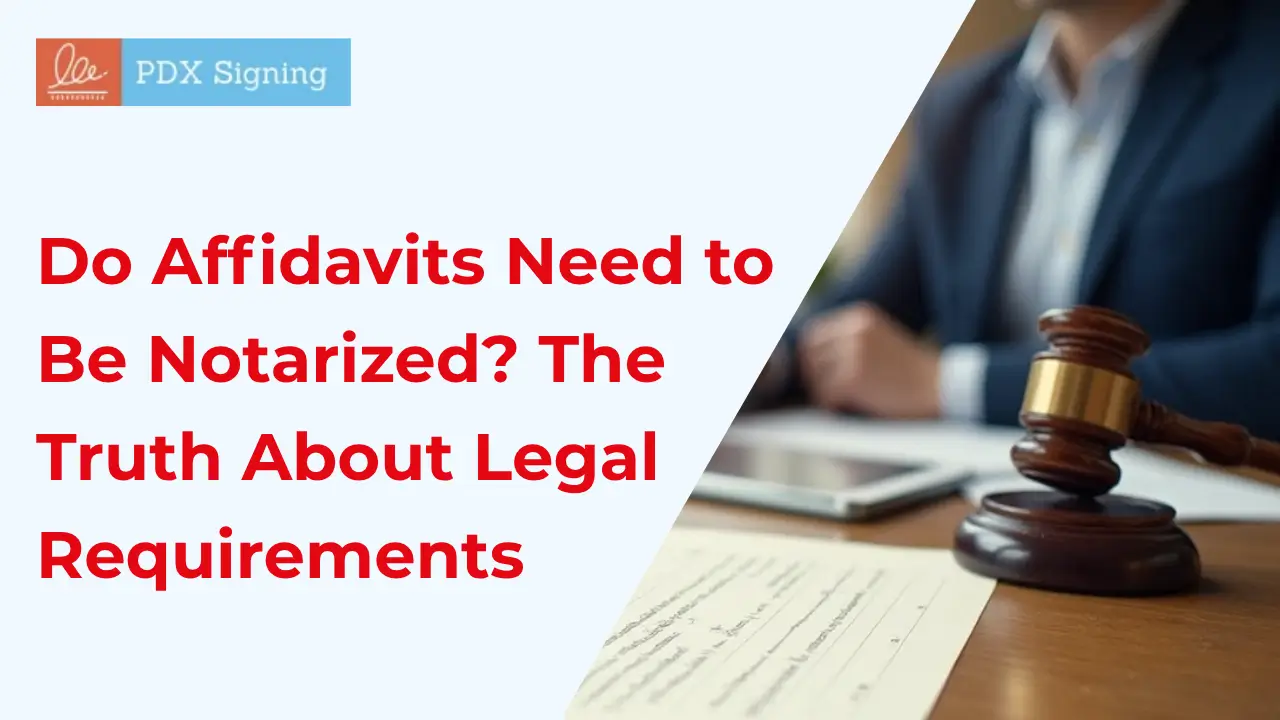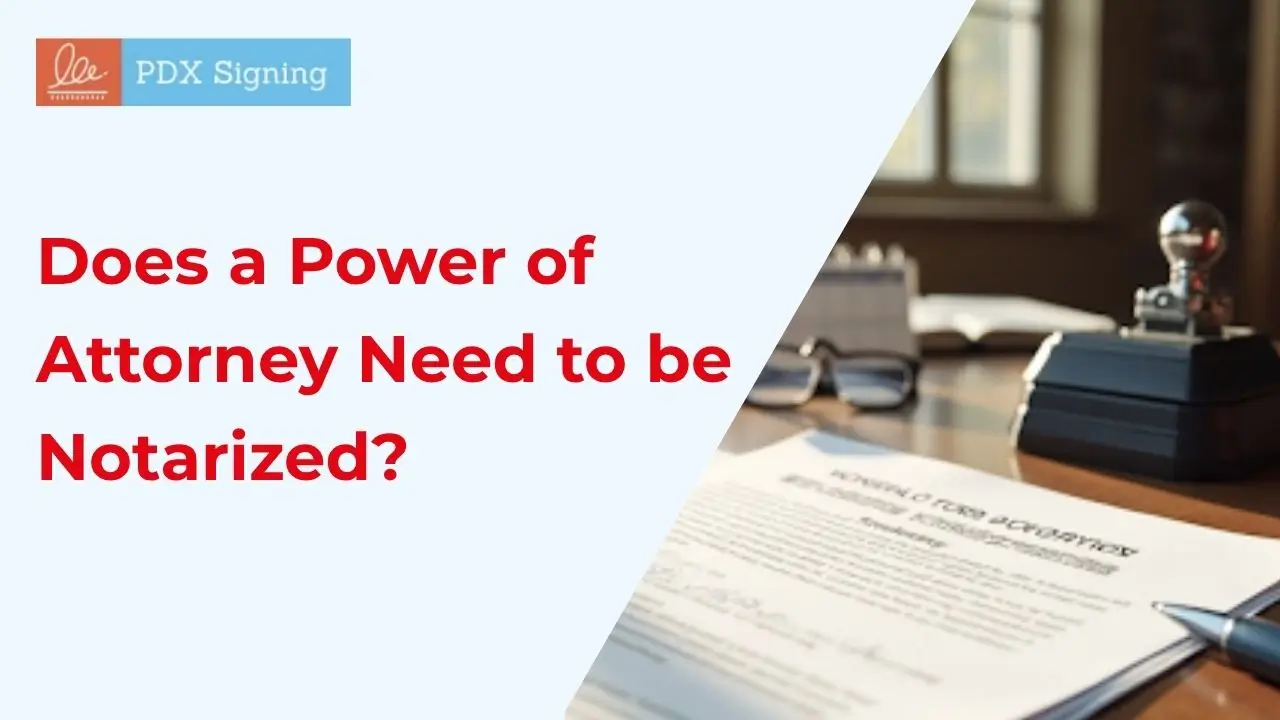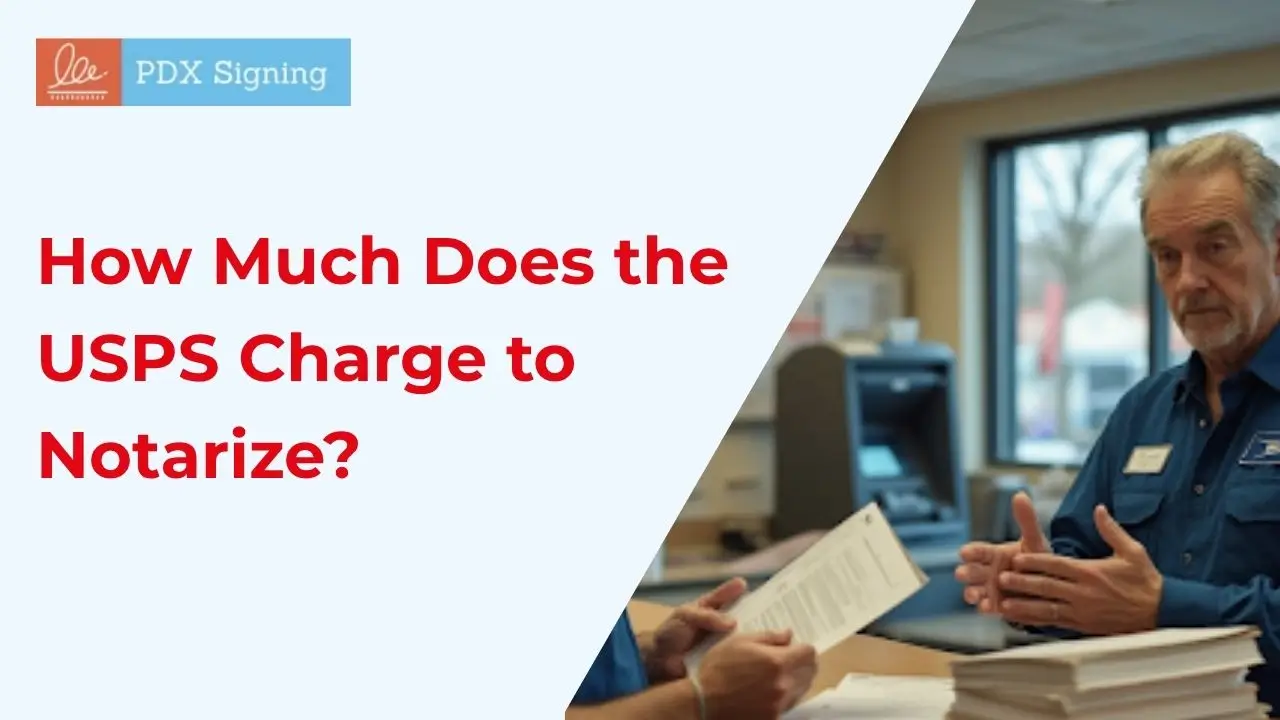Getting a notarized copy of passport documents can be surprisingly challenging. State notarial laws don’t adequately cover certifying copies of passports and driver’s licenses. Many people get confused by the conflicting information from different notaries.
Some states’ laws prohibit notaries from certifying copies of any documents, including passports. The correct procedure becomes crucial to understand when you need this documentation to apply for visas, complete immigration processes, or handle other legal matters. This piece will show you exactly how to get your passport properly notarized and provide alternatives that work even with state restrictions. PDX Signing brings fast, professional, and mobile notary services right to your door—whether it’s your home, office, or a coffee shop.
What is a notarized copy of a passport?
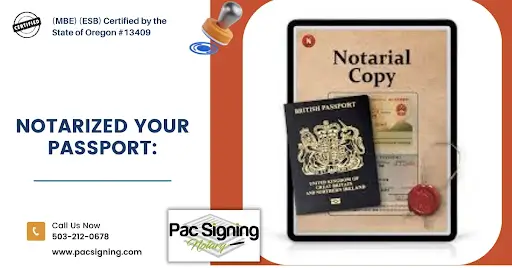
A notarized passport copy means much more than a simple photocopy. It stands as a legally verified document that carries weight in many situations.
Definition and purpose
A notarized passport copy is a photocopy that a notary public certifies as a true copy of the original document. The notary compares your original passport to the copy and adds their official signature, seal, and certification statement to prove its authenticity.
You need this certification to prove your identity through a legal process. Your original passport stays safe from loss or damage while you still have a document with legal standing. The notary’s seal and signature add credibility that proves the document’s proper execution.
Note that the notary’s certification only confirms the copy matches the original document, not that the original is valid. The notary doesn’t check the document’s content but makes sure it’s a complete and exact copy.
When is it required?
Your notarized passport copy proves your identity in many situations:
- Financial institutions – Banks and credit unions need certified copies to open accounts as part of their Know Your Customer (KYC) rules
- Visa applications – Many countries ask for notarized passport copies to process visas
- Professional services – Law firms and accountants often need these to check client identity
- Real estate transactions – Notarized copies help stop money laundering
- Financial services – Investment firms and insurance companies use them to follow compliance rules
- Cryptocurrency exchanges – These platforms verify identity to meet anti-money laundering laws
You might need a notarized copy anytime it’s risky or impractical to show your original passport.
Notarized vs. certified copy
People often use these terms interchangeably, but small differences exist based on context and location.
A “notarized copy” and a “certified true copy” usually mean the same thing – a copy that an authorized official verifies. Some sources say a certified true copy might come from the document’s issuing authority. Despite that, when organizations ask for a “certified copy” of your passport, they usually want a notarized copy.
The main difference lies in what the certification proves. A notarized passport copy doesn’t verify if the original document is real. It just proves that the copy matches what looks like an original document to the notary public. The notarization focuses on the copy’s accuracy rather than the original document’s legitimacy.
How to get a notarized copy of your passport
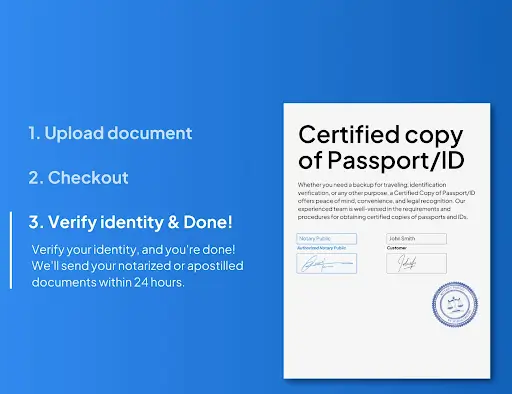
Getting your passport notarized can be quite different depending on where you live in the United States. Here’s a simple guide to help you through this sometimes tricky process.
Step 1: Check your state’s notary laws
Your state’s regulations need verification before you start. Some states don’t allow notaries to certify copies of any documents – this includes Michigan, Nebraska, North Carolina, Ohio, South Carolina, and South Dakota. States like Alaska, New York, and Tennessee allow notaries to certify only tangible copies of electronic records. California’s notaries can only certify copies of power of attorney documents or journal entries. Iowa stands out by specifically allowing notaries to certify passport copies.
Step 2: Bring the original and a copy to the notary
After confirming your state allows passport copy certification:
- Take your original passport with you (notaries need it to verify authenticity)
- Make a high-quality photocopy or let the notary handle it
- Carry valid identification for the notary’s verification
Florida requires notaries to watch while making the copy they’ll certify. The same rule applies in Arkansas, Connecticut, and Delaware, where notaries must either watch the copying process or make the copy themselves.
Step 3: Choose the correct notarial act
Your state’s laws will determine whether you need:
Direct certification – The notary confirms the copy’s accuracy (where allowed)
Document custodian statement – You sign a statement as the passport holder confirming the copy’s accuracy, and the notary certifies your signature.
States that don’t allow direct certification often use this alternative method. The notary certifies your signature on the statement instead of the copy itself.
Step 4: Complete the notarial certificate
The process ends with attaching the right notarial certificate. Direct certification certificates usually state the copy is “a true, exact, complete, and unaltered photocopy from the original document”.
The document custodian method requires you to sign a statement with similar wording, which the notary then certifies. Pennsylvania’s notaries must check both the original passport and the copy to ensure complete accuracy.
Arkansas notaries keep a copy for their records. West Virginia requires a written statement from customers confirming they can’t get the certified copy from a recorder or public document custodian.
What to do if your state doesn’t allow copy certification
Your state might not allow notaries to certify document copies. No need to worry. A practical and widely accepted alternative exists.
Use a copy certification by the document custodian.
The document custodian method gives you a legal way around states where direct certification isn’t allowed. You become the “document custodian” as the passport holder and certify that your copy is accurate. The notary checks your identity and watches you sign this statement, not the passport copy itself. The process works because the notary doesn’t certify the copy, but notarizes your statement about it.
Sample custodian statement
The best way to implement this requires language like this:
“I, [Your Full Legal Name], hereby certify that the attached reproduction of my passport is a true, complete, and accurate copy of the original document in my possession. I understand that making false statements is subject to penalties of perjury.”
Sign and date this statement while the notary watches. The notary will add their signature, seal, and commission information. Having this statement ready beforehand is a great way to speed up the process.
When this method is accepted
People commonly accept this approach:
- To handle most legal and administrative purposes
- In immigration proceedings
- During business transactions
- For academic applications
- At financial institutions
Most organizations that need a notarized passport copy accept this alternative. It meets their main goal—creating accountability for the document’s authenticity.
Limitations and risks
This method has some limitations you should know:
- Foreign embassies or consulates might ask for direct certification
- Government agencies could have specific requirements beyond this method
- The custodian statement lacks a standard, universal format
- Legal weight changes between different jurisdictions
The document custodian approach remains reliable in most cases where states don’t allow direct certification of passport copies.
Where to get a notarized copy of your passport
You can easily get your passport copy notarized at places you might already visit. Your local bank or credit union tops the list of places where notary publics are ready to help certify documents.
Banks and credit unions
Most financial institutions have notaries on their core team. These places make a great choice since many people’s accounts are several years old with them.
The good news? Notary services come free for account holders. Bank of America doesn’t charge anything at many of its financial centers. The same goes for Chase, Wells Fargo, and Citizens Bank, though only certain branches provide this service.
Here’s what you need to know before heading out:
Every branch might not have notary services available, so a quick call ahead makes sense. Banks have different rules, and it helps to check if they’ll notarize your specific document. Bank of America, for example, usually stays away from real estate documents.
Remember to bring:
- Your original passport
- The copy that needs notarization (some places will make a copy for you)
- Valid government-issued photo ID
The notary will check your original passport against the copy before adding their seal and signature. Banks handle these documents daily, so their notaries know their way around different types of paperwork. A heads up – non-customers might need to pay a fee or visit their bank instead. Don’t let paperwork slow you down. Whether you’re closing a loan or need general notary work, PDX Signing is just a call or click away.
FAQs
Q1. How do I obtain a notarized copy of my passport in the United States?
To get a notarized copy of your passport, bring your original passport, a photocopy, and a valid ID to a notary public. The notary will either certify the copy directly or notarize your statement attesting to the copy’s accuracy, depending on state laws.
Q2. Where can I find someone to notarize this?
Start close to home! Your own bank or credit union often has a notary, and if you’re a customer, it might even be free. Many UPS Stores also offer notary services – super convenient. Pro Tip: Always call ahead! Make sure the notary is available that day and ask if they need anything specific for passport copies. Saves you a wasted trip.
Q3. Can I get my passport notarized online?
While some documents can be notarized online, passport notarization typically requires in-person verification of the original document. Check with your state’s regulations and the requesting organization’s requirements before pursuing online notarization for passports.
Q4. What if my state doesn’t allow notaries to certify passport copies?
If direct certification isn’t allowed, use the “document custodian” method. You’ll sign a statement declaring the copy’s accuracy, which the notary then notarizes. This alternative is widely accepted for most purposes.
Q5. Do I need a color copy of my passport for notarization?
A high-quality black and white copy is usually sufficient for notarization. However, some organizations may specifically request color copies. When in doubt, it’s best to check with the requesting party for their exact requirements.


